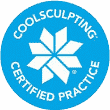Warts come from infections that are caused by viruses in the HPV (human papillomavirus) family of viruses. Often, these fleshy bumps will go away on their own. However, they can be contagious. If you have one or more that just won’t go away or are located in an inconvenient or unsightly place, your dermatologist can help. Different types of warts will respond better to different treatments, and an experienced dermatologist can help you decide on the best option for your case.
Topical Treatments
Your dermatologist may recommend a topical medication or product containing salicylic acid as treatment. The acid works by dissolving the bump itself, as well as the skin over the top of it. This type of treatment may be available as a topical gel or ointment, or as a patch or bandage.
Freezing
Another common removal method involves freezing using liquid nitrogen. This treatment, called cryotherapy, can be done in your dermatologist’s office in only a few minutes. Complete removal could take more than one treatment session.
Electrical Stimulation
Some dermatologists may use electrical stimulation as a way to get rid of unwanted warts. This method may be used as an alternative to surgery, as it can be a way to permanently eradicate them without the need for surgery and the subsequent recovery.
Surgery
There are also surgical options for removal. This is usually the preferred course of action when a wart is very large, painful or does not respond to other treatment methods. Your dermatologist can advise you regarding the surgical methods available to you, and help you determine whether this is an ideal treatment for your unique situation.
Prevention Tips
While there is no guaranteed way to be sure that you won’t get a wart, there are ways to reduce your chances.
- Avoid touching warts (yours or anyone else’s).
- Avoid walking barefoot, especially on warm or moist surfaces where bacteria could thrive. Wear sandals when walking around at swimming pools, locker rooms and public showers.
- Treat your feet with care. Injured or irritated feet are more susceptible to skin issues.
- Don’t share socks, towels, shoes or razors with others. A person with no visible skin problems could still carry the viruses that cause them.
- Keep your feet dry. Wear moisture-wicking socks and breathable shoes. If your feet get wet, dry them as soon as possible.
- Don’t bite your nails. This bad habit can actually cause warts to spread.
- Keep warts covered with a patch or bandage to avoid spreading them to others, until you can receive treatment.
If you want to find out more about your options for dealing with a number of skin conditions, contact Georgia Dermatology Partners today. With a team of board-certified physicians, our full-service practice can help you take control of your skin and feel better about yourself.













